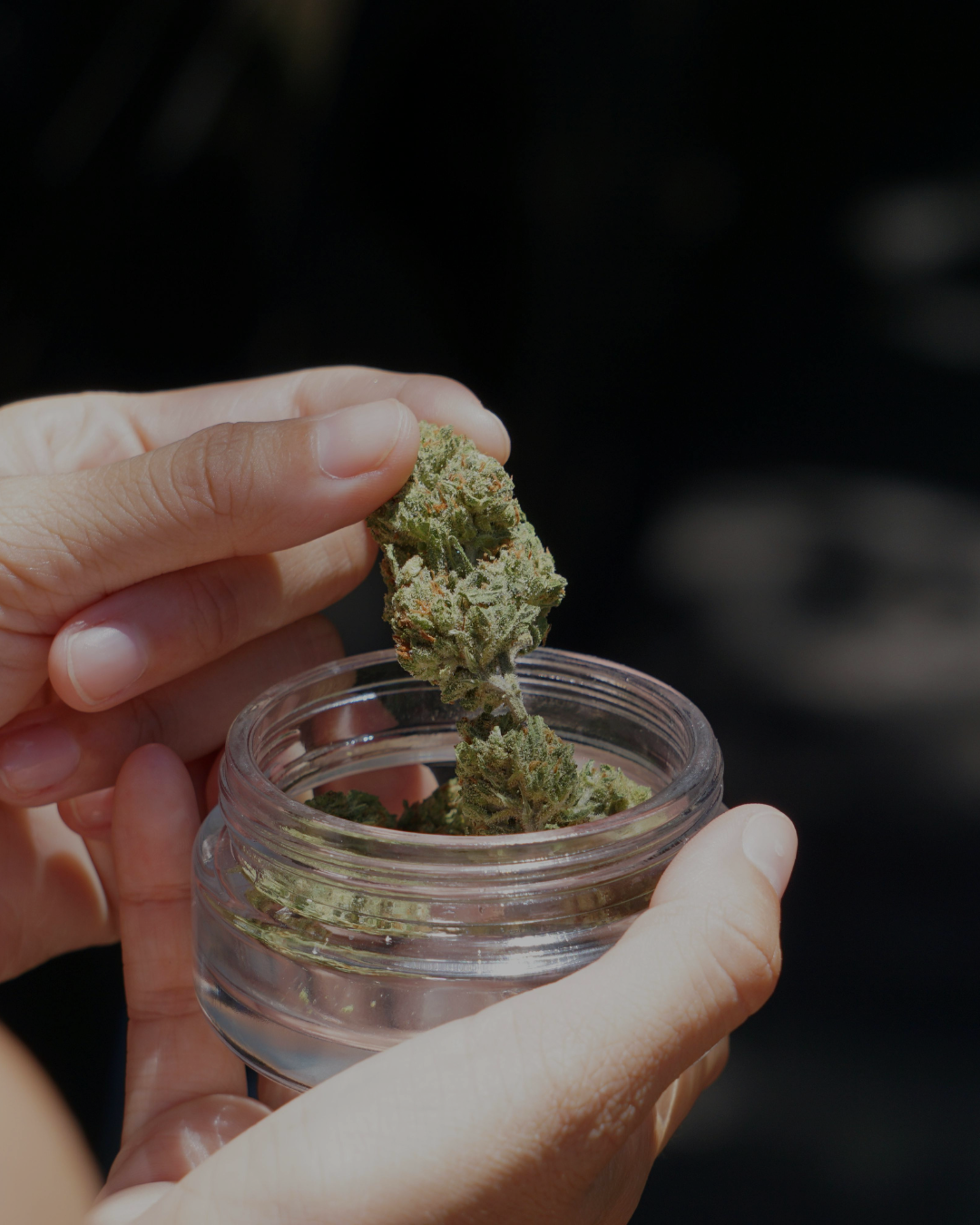CBDA vs. THCA
CBDA vs. THCA: Understanding the Differences and Benefits of Raw Cannabinoids
Cannabinoids are the active compounds found in cannabis and hemp plants, known for their wide range of effects on the human body. While THC (tetrahydrocannabinol) and CBD (cannabidiol) are the most well-known cannabinoids, their acidic precursors, THCA (tetrahydrocannabinolic acid) and CBDA (cannabidiolic acid), are gaining attention for their unique properties. These raw cannabinoids exist in the unheated or raw forms of cannabis and have distinct characteristics compared to their decarboxylated counterparts. This article dives into the differences, mechanisms, and potential benefits of CBDA and THCA.
The Basics of CBDA and THCA
Both CBDA and THCA are acidic precursors, meaning they are the natural forms of CBD and THC found in raw cannabis plants. When cannabis is heated (through smoking, vaping, or cooking), these acidic cannabinoids undergo a process called decarboxylation, which removes a carboxyl group and converts them into CBD and THC.
Key Differences Between CBDA and THCA:
- CBDA is the precursor to CBD and is found in abundance in hemp and cannabis strains bred for high CBD content.
- THCA is the precursor to THC and is prevalent in cannabis strains bred for psychoactive effects.
- Neither CBDA nor THCA is intoxicating, as they do not bind effectively to CB1 receptors in the brain.
Mechanisms of Action
CBDA: Modulating Serotonin and Inflammation
CBDA interacts with the endocannabinoid system (ECS) differently from its decarboxylated counterpart, CBD. Rather than binding directly to cannabinoid receptors, CBDA affects serotonin (5-HT) receptors, particularly 5-HT1A. This interaction influences mood, nausea, and inflammation.
- Key Mechanisms:
- CBDA is a potent antagonist of the COX-2 enzyme, which is involved in inflammation.
- Its action on serotonin receptors makes it a potential candidate for treating nausea and anxiety disorders.
THCA: Anti-Inflammatory and Neuroprotective Potential
THCA has minimal interaction with CB1 and CB2 receptors but influences the ECS indirectly. Studies suggest that it modulates inflammatory responses and oxidative stress, making it a promising compound for neuroprotection and immune system regulation.
- Key Mechanisms:
- THCA inhibits pro-inflammatory enzymes, contributing to its anti-inflammatory effects.
- Its antioxidant properties may protect brain cells from degeneration.
Potential Health Benefits
CBDA
- Anti-Nausea Properties:
- CBDA has shown effectiveness in reducing nausea and vomiting, particularly in chemotherapy patients. Its action on 5-HT1A receptors is stronger than CBD, making it a more potent anti-nausea agent.
- Anti-Inflammatory Effects:
- By inhibiting COX-2 enzymes, CBDA reduces inflammation, making it potentially useful for arthritis, inflammatory bowel disease (IBD), and other chronic inflammatory conditions.
- Mood Regulation:
- Preliminary studies suggest CBDA may help with anxiety and depression due to its influence on serotonin levels.
THCA
- Anti-Inflammatory Benefits:
- THCA’s inhibition of inflammatory enzymes suggests it could be used for autoimmune conditions, such as rheumatoid arthritis or lupus.
- Neuroprotection:
- Its antioxidant properties make it a candidate for preventing neurodegenerative diseases like Parkinson’s and Alzheimer’s.
- Appetite Stimulation:
- THCA has been noted for its ability to stimulate appetite without the psychoactive effects of THC, making it valuable for patients with cachexia or eating disorders.
- Pain Management:
- THCA may help alleviate chronic pain, particularly when combined with other cannabinoids and terpenes.
Comparing CBDA and THCA
| Property | CBDA | THCA |
|---|---|---|
| Precursor To | CBD | THC |
| Psychoactivity | Non-intoxicating | Non-intoxicating |
| Primary Mechanisms | Modulates serotonin (5-HT1A); COX-2 inhibition | Anti-inflammatory; antioxidant |
| Health Benefits | Anti-nausea, anti-inflammatory, mood regulation | Neuroprotection, appetite stimulation, pain relief |
| Research Status | Emerging, focused on nausea and inflammation | Emerging, focused on neuroprotection and inflammation |
The Role of Decarboxylation
Decarboxylation transforms CBDA into CBD and THCA into THC, significantly altering their effects:
- CBDA vs. CBD: CBDA is more targeted in its action on serotonin receptors, whereas CBD has broader applications, including pain relief, anxiety reduction, and seizure management.
- THCA vs. THC: THCA is non-intoxicating and offers anti-inflammatory and neuroprotective benefits, while THC provides psychoactive effects and is more potent for pain and nausea relief.
Understanding the raw forms—CBDA and THCA—opens new possibilities for using cannabis therapeutically without the need for heating or smoking.
The Entourage Effect and Raw Cannabinoids
When CBDA and THCA are used alongside other cannabinoids and terpenes, they contribute to the entourage effect. This synergy enhances the therapeutic potential of cannabis:
- CBDA and THCA Combination: May provide comprehensive anti-inflammatory effects, benefiting individuals with chronic pain or autoimmune disorders.
- With Terpenes: Terpenes like limonene (anti-anxiety) and myrcene (sedative) can complement CBDA and THCA for targeted benefits.
Conclusion
CBDA and THCA represent the raw, untapped potential of cannabis. Their non-intoxicating nature and distinct mechanisms of action make them valuable for a range of therapeutic applications. From reducing inflammation and nausea to protecting the brain. As research continues, these acidic cannabinoids may become cornerstones in the development of novel treatments. Offering a natural alternative for various health challenges.
Whether incorporated into raw cannabis juice, tinctures, or capsules, CBDA and THCA provide a unique pathway to harnessing the power of cannabis without psychoactive effects. For those seeking targeted relief with minimal side effects, these raw cannabinoids may hold the key to the future of cannabis medicine.
At Cannabis Career Academy, we believe in the importance of cannabis education and spreading awareness of its many benefits. Always remember to use cannabis mindfully and consult with a healthcare provider if you have any questions about how cannabis fits into your wellness routine. Enroll in our dispensary agent certification course to learn more!

